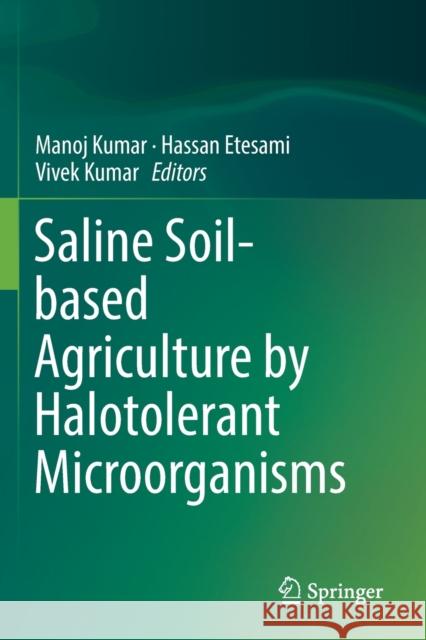Saline Soil-Based Agriculture by Halotolerant Microorganisms » książka
Saline Soil-Based Agriculture by Halotolerant Microorganisms
ISBN-13: 9789811383373 / Angielski / Miękka / 2020 / 253 str.
Saline Soil-Based Agriculture by Halotolerant Microorganisms
ISBN-13: 9789811383373 / Angielski / Miękka / 2020 / 253 str.
(netto: 575,06 VAT: 5%)
Najniższa cena z 30 dni: 578,30
ok. 22 dni roboczych.
Darmowa dostawa!
This book discusses the role of salt in current agricultural approaches, including the low salt tolerance of agricultural crops and trees, impact of saline soils, and salt-resistant plants. Halophytes are extremely salt tolerant plants, which are able to grow and survive under salt at concentrations as high as 5 g/l by maintaining negative water potential. The salt-tolerant microbes inhabiting the rhizospheres of halophytes may contribute to their salt tolerance, and the rhizospheres of halophytic plants provide an ideal opportunity for isolating various groups of salt-tolerant microbes that could enhance the growth of different crops under salinity stress.
The book offers an overview of salt-tolerant microbes' ability to increase plant tolerance to salt to facilitate plant growth, the potential of the halophytes’ rhizospheres as a reservoir of beneficial salt-tolerant microbes, their future application as bio-inoculants in agriculture and a valuable resource for an alternative way of improving crop tolerance to salinity and promoting saline soil-based agriculture. This special collection of reviews highlights some of the recent advances in applied aspects of plant (halophytes)-microbe interactions and their contribution towards eco-friendly approaches saline soil-based agriculture.











